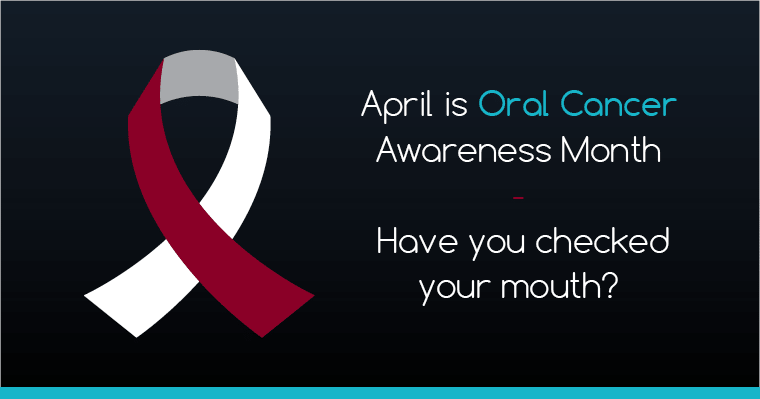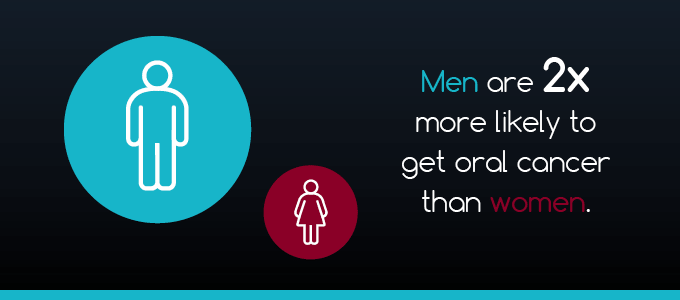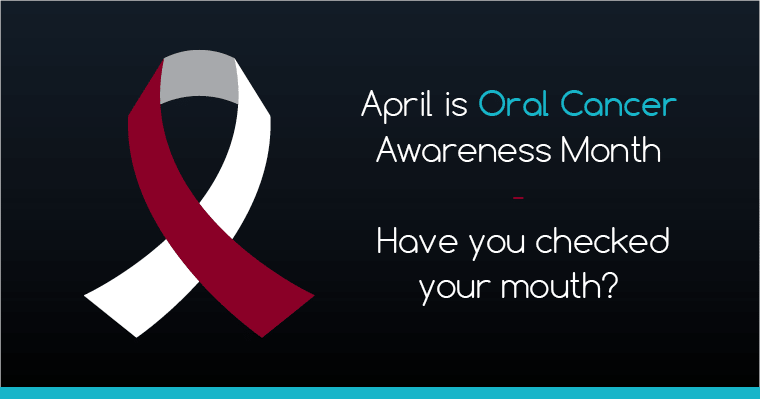
April is Oral Cancer Awareness Month. Are you familiar with this deadly disease? According to the American Association of Oral and Maxillofacial Surgeons (AAOMS), an estimated 50,000 people are diagnosed with oral cancer EVERY YEAR and 9,000 U.S. citizens will die from this horrifying disease.
Oral cancer’s mortality rate isn’t because it’s hard to diagnose, but because cancer is discovered late in its development. You can take action to stop this disease before it gets deadly.
Know the risk factors
Everyone is at risk for oral cancer. Whether you’re in your early 20’s or an active 40-year-old, you’re just as likely to get oral cancer. However, some factors increase your chances of getting oral cancer, including:
- Smoking and chewing tobacco
- Excessive drinking
- Exposure to HPV (Human papillomavirus)
- Poor oral hygiene
- Poor diet
- Physical trauma
If any of these factors apply to you, consider changing your habits to lower your chances of oral cancer.

Recognize the symptoms
It’s important to perform a self-examination every month to catch any signs of oral cancer before it gets worse. Using a bright light and a mirror, check your cheek, tongue, the inside of your lips, and gums for:
- White or red patches of tissue
- Sores that bleed easily
- Abnormal lumps
- A chronic sore throat
- A mass or lump in the neck
- Difficulty swallowing
If you’ve noticed these symptoms, it’s critical to contact your family dentist as soon as possible for an oral cancer screening.
Oral Cancer Awareness Month: Get screened
Getting regular screenings performed by your general dentist puts you in the best position to detect oral cancer in its early stages. This is just one more critical reason to keep up with your checkups and cleanings twice a year!
In honor of Oral Cancer Awareness Month, help us spread the word by sharing this blog post. It could save a life!
The content on this blog is not intended to be a substitute for professional medical advice, diagnosis, or treatment. Always seek the advice of qualified health providers with questions you may have regarding medical conditions.
Re-posted with permission. Source.

